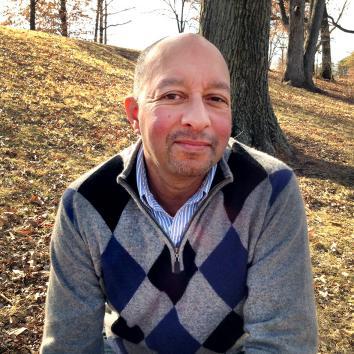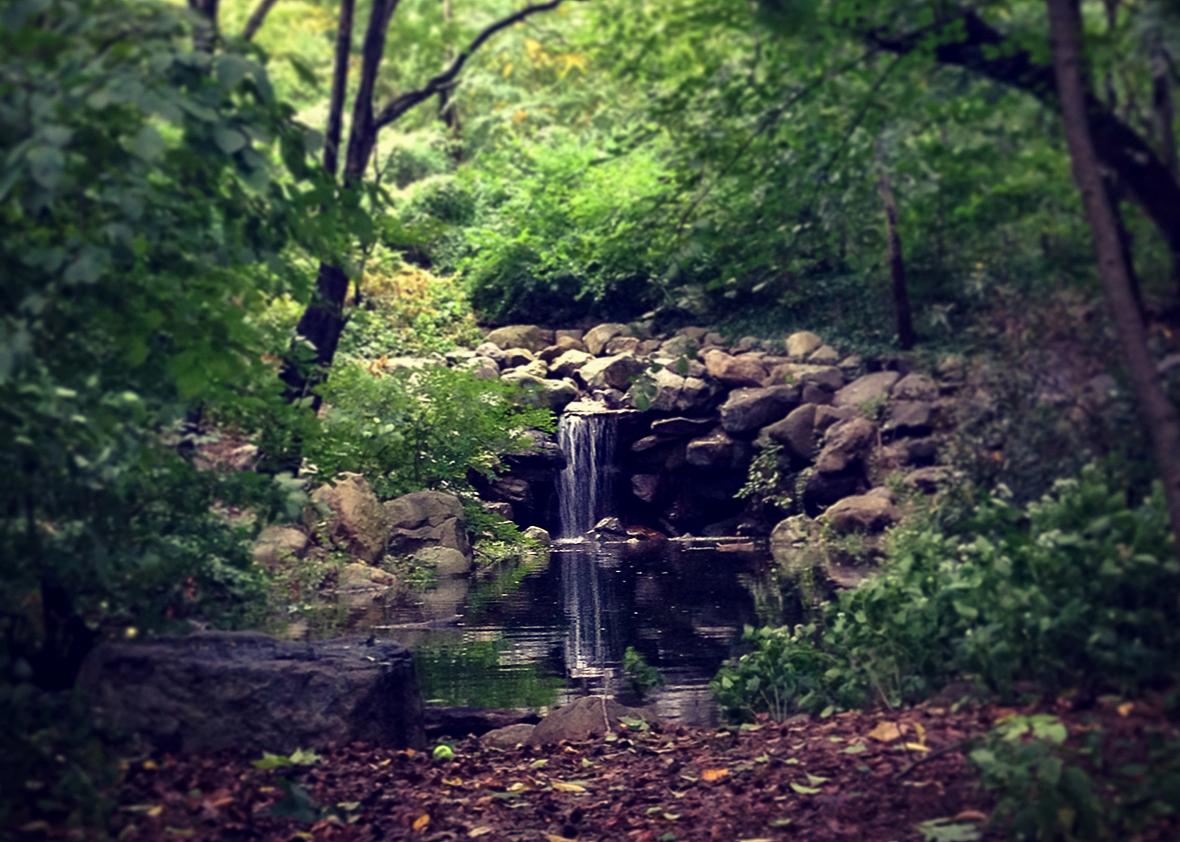“Beauty is truth,” said Keats’ still, cold, silent, ancient urn, “truth beauty,” and the saying persists, frozen just outside of time. That line, and the even more didactic one that follows (which may or may not be “spoken” by the urn), has led to no end of critical dismay and debate, its icy Platonic consolation braiding two divergent ideals into a Mobius strip, impossible to encompass, impossible to complete.
In our Aristotelian present tense, the urn’s equation seems implausible, yet the twin obligations still inflect our arguments about what poetry is. For some, they inscribe a Venn diagram with poetry looking out through the small eye of their overlap. For others they suggest a binary—beauty or truth, pick one. With Reconnaissance, his 12th book of poems, Carl Phillips once again seems torn. His poems are driven by the desire to transform truth into beauty. Yet they are scrupulous in their acknowledgement that the truth has, more often than not, been left behind. As in his previous, Silverchest, Phillips casts his long line across short poems, reaching for something inhuman, astonishing, extremely beautiful, and frequently far from home.
So the book’s title is to some extent aspirational: Reconnaissance, after all, involves both going out and coming back. But Phillips isn’t in search of knowledge. He wants power, danger, an annihilating beauty that can be chosen but not harnessed. Strangely, his tool for that reconnaissance is, essentially, a shrug. “Why not?” he writes. “Who cared?” “Who says?” “So what?” Set into the lush complexity of Phillips’ poetry, these conversational throwaways suggest that human appetite can make everything else, even beauty, even beautiful language, unnecessary. But again, the poems ask: “So what?”
The book opens with the title piece. At just five lines, “Reconnaissance” encapsulates much of what the collection, as a whole, will do:
All the more elegant forms of cruelty, I’m told, begin
with patience. I have practiced patience. As for piety
being, to superstition, as what had seemed a fortress
can be to not-a-fortress-in-the-end, at all: maybe so.
—Why not move like light, reflected, across the snow?
The poem, which starts off in near-pedantic certainty, turns out to be almost maddeningly hedged: “I’m told,” “As for,” “maybe so,” “why not.” Even the final image is hard to parse: Shouldn’t reflected light move away from the snow? And what would it even mean to move like that?
In many ways, Phillips reminds me of John Ashbery, a poet I admire, but mostly, these days, from afar. For many, Ashbery’s elusive presence in poetry has been life- and mind-altering. For me, feeling lost so much of the time, it heightens a loneliness that’s already there. So I wonder about the thrill I feel reading Phillips, who is also elusive, also playing with different registers of language, also willing to go much further into unreality than I ever would or could.
But Phillips insists on registering the cost of going so far—and that choice dramatizes, in turn, the forces that compel us to incur the cost nonetheless. The world of beauty he moves into is frequently self-destructive or destructive of others. He consistently finds loveliness in things like fog and ruins, sites of damage or effacement that seem to glorify what’s been erased. In poem after poem, the flesh is torn: “You are the knife/ and you are what the knife/ has opened, says the wind.” “But what if suffering is in fact for nothing—/ no particular wisdom after, blooming flower-like,/ blood in the water.” These statements are always contingent (in these cases, on the wind and set inside “what if”), but that doesn’t make the harm that they incarnate any less real. Nor does it lessen the compulsion to go there again.
There’s a valedictory quality to many of these poems—acceptance, self-awareness, humility, something (perhaps someone) lost, and a hint of weary gratitude, too—but not the kind of valediction that reaches for the past. Instead, the poems play out in the haunted contingencies of a single moment. “Lately,” Phillips writes repeatedly, and it feels like that’s enough, to wander off into whatever is only lately true.
In many of these new poems, Phillips speaks to someone unidentified, possibly unreal but partly grounding, picking up in the middle of conversations, as he does here at the start of “The Darker Powers”:
Even if you’re right,
and there’s in fact a difference
between trouble unlooked-for, and
the kind of trouble we pursued,
ruthlessly, until at last
it was ours,
what will the difference
have been, finally? What I’ve
called the world continues
to pass for one…
The poem keeps spinning out from there, that sentence, the poem’s second, going on for another 16 lines before yielding to a third sentence that brings the poem to a close.

Photo by Reston Allen
You could get lost in those sentences, the slips through metaphor and across associations, the reconsiderations, the hedges, were it not for the care with which Phillips manages them, their grammatical unities a long rope he lays down to mark the way back. At times, that well-mapped movement away from sense feels mild, no more radical than the playful yoking of words into unlikely terms: “the river, unspooling,/ unspooled itself with all the generosity/ of a mirror, water’s cool, see-throughable/ commitment…. ” But then it becomes, in the same poem, a matter of almost animal urgency, civilization seeking new footing beyond its own perimeters, too late to turn back:
All of this
inside his dying body, from which I turned,
as I believe he wanted me to, like a
well-trained horse that, startled
suddenly, then remembering somehow a way
through panic, begins again ascending,
ceremonial almost, now
renegotiates the more
difficult branches, where they fell, keep falling…
Late this August, in an interview with NPR, Phillips responded to a question about his political role as a gay and biracial poet:
I think of my work as being quite political but maybe not in conventional ways. Certainly when I first began writing in the ‘90s, it seemed a political act to even speak of gay experience in poetry. It was a pretty new thing to do, but I also think it’s a political act to assert one’s right to decide what to write about, and not what people expect one to write about.
I have, from the start, been writing about the body and power. And maybe more specifically, the gay male body, and power in intimate relationships, but I feel as if there’s a lot of overlap with society’s views of how different bodies are treated. So to that extent, I think there’s always a kind of political resonance to the personal, and then vice versa.
This is lovely and largely true. And we are too willing, too often, to ask more of writers who come from historically (and presently) oppressed groups. But the overlap Phillips mentions often, at least for me, gets lost in his brilliant mythologizing, which seems to arc, within its brief contingencies, toward a place outside of time. More than most other living and recent American poets I cherish, Phillips writes poems that stay inside the book. Reconnaissance moves through a world in which harm is a part of nature: gravitational, nearly inevitable. So when I put the book down and step back into a world where harm is also structural, where people have jobs and bills and much of our beauty is allowed for by systems we try to ignore, I find that the pleasures of his poems are hard to apply, the truth of our political lives the one truth he slips clear of.
Yet I still go back to his books.
I do so because most lives, mine included, ache for redemption, even as they remind us that most forms of redemption are fundamentally untrue. And I do so because Phillips writes so many lines like these, from “Since You Ask,” in which ardent thought threads through its own devices but never tangles or snaps:
… if I don’t think about it,
the dark’s pieces briefly come back together, they
lift as one and, like a swarm of bees, thick, ungainly,
in slow reverse, the dark clears.
“If I don’t think about,” he writes, then thinks with remarkable agility of what such unthinking allows—darkness becoming a source of order, that order becoming mobile and alert, then populated, a clearing, the chance to recommence, which the poem does. Phillips blinds himself so that he might see, then looks intensely. He makes extraordinary beauty true by acknowledging that the beauty we long for is often unreal.
—
Reconnaissance by Carl Phillips. Farrar Straus and Giroux.
See all the pieces in the Slate Book Review.
Sign up for the Slate Book Review monthly newsletter.
